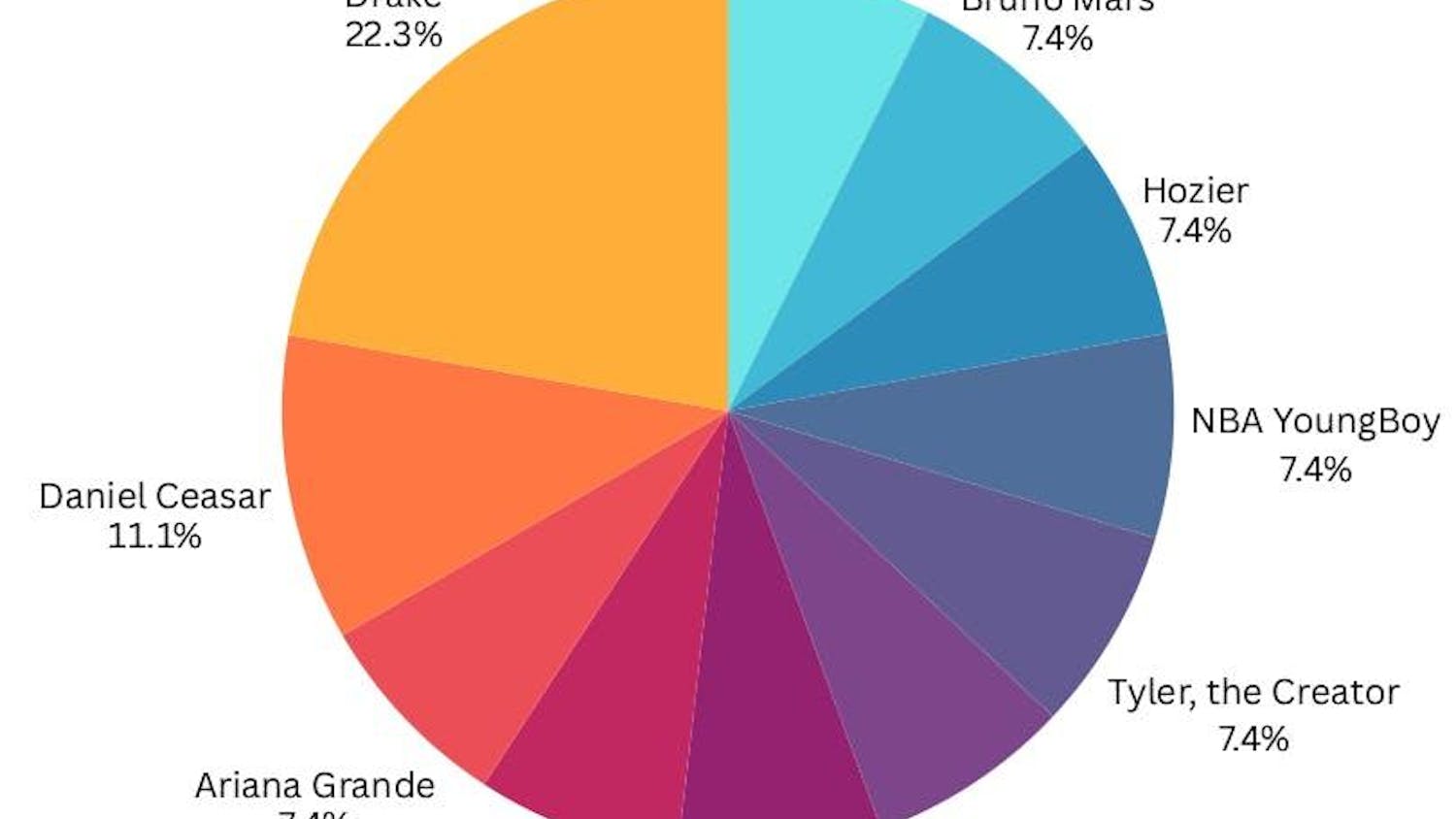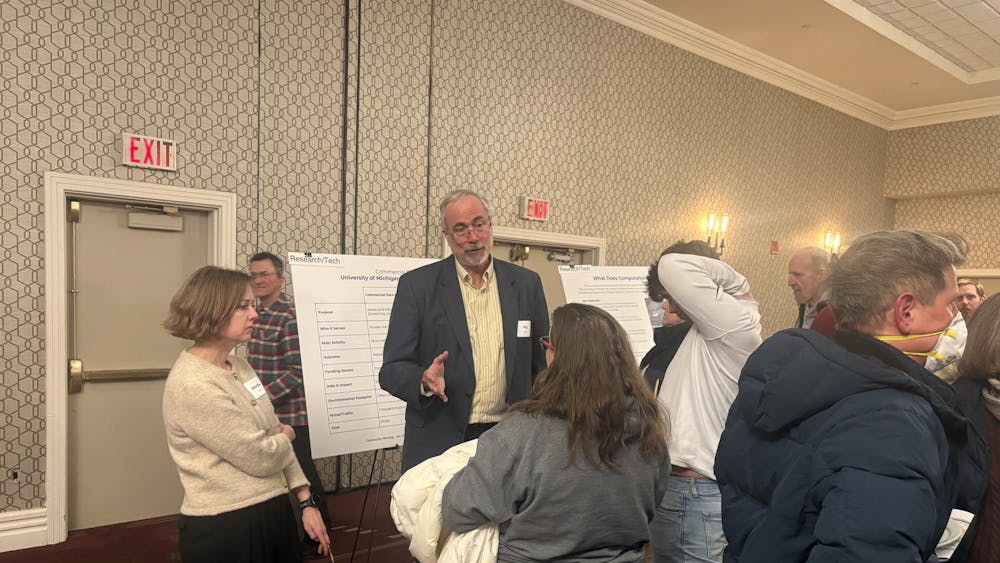Eastern Michigan University's Chief Information Officer sat down with about a dozen attendees for Coffee with the CIO Friday. The event involved a two-hour long discussion about the state and future of tech, access and cyber security at EMU.
CIO Carl Powell faced the assembly of students and faculty. Four tables were set up in the tower room of Halle Library. Powell sat in an armchair in the entrance arch and answered the students’and faculty’s questions about the nature and future of IT on campus. The conversation went through everything from security and software to Wi-Fi and 3D printers.
“IT is good at one size fits all,” Powell said.
Powell said the IT department’s “new initiatives” are to keep the budget and maintain a level playing field of access. Currently the level of technology and sophistication from classroom to classroom and building to building is not distributed evenly. For example, one room in a recently renovated building, like Mark-Jefferson, might have a state-of-the-art computer and projector system, etc., but across campus, another classroom might have a ten-year-old computer or no technology at all. Therefore, IT’s challenge is to maintain a quality amount of service to campus that can still be useable for aging devices in the buildings that have not been renovated recently.
There is also the struggle of balancing accessibility and security. EMU’s security measures are only available to students, but they are not invulnerable to phishing or rogue devices.
A rogue device is when a hacker sets up a laptop somewhere around his target that offers free Wi-Fi access. Then, someone who has access to the network the hacker wants to get to uses the hacker’s free Wi-Fi, thinking it's a normal Wi-Fi router. And when they do that, they inadvertently give the hacker their passwords and a way into the third system they want to access.
While the IT department has methods to combat this type of hacking, it is not foolproof, according to Powell. It is just one of an increasing number of cyber-based crimes.
“Any time you are connected to any kind of wireless anywhere beyond your house, there's a level of trust that it is private," said Powell. “I never conduct any private financial transactions over anything than my home wireless because I know how I set it up and I know how secure it is. But the minute I get it out of [my home] I don't know how secure it is or isn’t.”
In general, cyber crime has been rising for a long time now. According to a March article from Bloomberg Business, “80 percent of the biggest 100 law firms have had some sort of breach.”
Powell said that the public's expectation was that you would have perfect Wi-Fi everywhere and have a certain degree of protection from hackers.
“The two don't exist,” Powell said. “You can't have both... If you want super secure, then jack it into the wall. At least then I know you're the only computer on that network outlet.”
The conversation also went into Wi-Fi on campus. At Eastern, Wi-Fi is provided by antenna located in little white domes mounted into the ceilings of buildings. At any point, Powers said, wireless computers eventually become wired computers. Once a Wi-Fi signal is connected, it connects to the nearest dome and transmits through the wires like a traditional Internet connection. The problem arises when there are more computers in the area than the dome can handle. And that most of the time, most people don't equate their phones with computers when he says they should.
"I mean, right now I'm guessing there's probably a dozen devices in this room connected to the dome," Powell said. “No, there isn't. There are fourteen."
Cell phones with even rudimentary Internet and Wi-Fi capabilities connect to the Wi-Fi system just like laptops and tablets do, and the Wi-Fi system doesn't know the difference between a computer and use and out of use.
Powell came to EMU with 25 years of IT management experience and education when he was hired. He has been in charge of Eastern’s IT department since 2010, according to a press release from EMU's Department of University Communications.









